With experts across the WILDLABS community working with every type of technology and in every imaginable environment, our platform is a great place to find advice and resources on choosing what tools are right for your conservation project. Whether you're in the market to try a new camera trap model, want to experiment with drones for the first time, or need help weighing the pros and cons of data management tools, there's someone in the WILDLABS community who can help you make a smart and informed choice!
The Community Base is our general gathering group. It's the place where we cover more general, big picture topics in conservation technology - ones that don't fit neatly into our other groups. If you don't know where to post something, just post it in this group. Our moderators will move it if needed!
At our Community Base, you'll find updates from the WILDLABS team on upcoming events and opportunities, and have the chance to shape our programs and platform with your opinions. And most importantly, the Community Base is also home to our Welcome to WILDLABS thread, the best place to introduce yourself to us and the community. Stop by and tell us what you're working on!
Whether you're new to WILDLABS and want to know where to begin, or you're a longtime member looking for a handy bank of resources, our Getting Started on WILDLABS thread will be your one-stop guide to getting the most out of our platform.
Want to find out more about WILDLABS? Check out our recent community call:
Header image: Ana Verahrami/Elephant Listening Project
Group curators
- @TaliaSpeaker
- | She/her
WILDLABS & World Wide Fund for Nature/ World Wildlife Fund (WWF)
I'm the Executive Manager of WILDLABS at WWF



- 23 Resources
- 64 Discussions
- 31 Groups
- @alexrood
- | she/her
WILDLABS & World Wide Fund for Nature/ World Wildlife Fund (WWF)
I'm the WILDLABS Communications and Community Management Associate Specialist at WWF-US

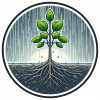



- 149 Resources
- 95 Discussions
- 6 Groups
No showcases have been added to this group yet.
- @matt_hron
- | He/Him
Wildlife Protection Solutions (WPS)
Product Manager at Wildlife Protection Solutions



- 0 Resources
- 8 Discussions
- 8 Groups
BSc Forest Engineering, MSc GIS Sciences, Drone researcher

- 2 Resources
- 11 Discussions
- 5 Groups
Apasionado por la vida en el campo y la electronica aplicada a proyectos de conservacion



- 0 Resources
- 37 Discussions
- 3 Groups
- 0 Resources
- 0 Discussions
- 6 Groups
trying to understand and improve the welfare of all animals that can suffer


- 4 Resources
- 6 Discussions
- 7 Groups
- 0 Resources
- 0 Discussions
- 3 Groups
- @npeoples
- | she/her/hers
Undergraduate student at UNC-Chapel Hill studying environmental science and journalism



- 4 Resources
- 1 Discussions
- 2 Groups
- @amklovrza
- | she / her
Hello! My name is Anabelle Marques Klovrza and I am a Ph.D. student at Dawson's lab. I am studying community assembly of island-like environments, and in trying to connect it with the vulnerability and fragility of the ecosystem.
- 0 Resources
- 0 Discussions
- 8 Groups
I am an environmental enthusiast with great passion for conservation, preservation and protecting the environment and wildlife and the natural resources. With
- 0 Resources
- 0 Discussions
- 3 Groups
University of Salford
- 0 Resources
- 2 Discussions
- 6 Groups
- @HollyCormack
- | she/her
Biodiversity Knowledge Management Intern at the Biodiversity Consultancy Ltd



- 6 Resources
- 5 Discussions
- 6 Groups
- @ryanhuang
- | He/Him/His
Conservation scientist based in Pretoria, South Africa
- 0 Resources
- 0 Discussions
- 6 Groups
To celebrate our 9th Annual #Tech4Wildlife Photo Challenge happening this week, we’re taking a look at past and current submissions that feature the fastest growing areas of conservation tech: movement ecology, AI,...
7 August 2024
To celebrate our 9th Annual #Tech4Wildlife Photo Challenge starting yesterday, we’re taking a look at past and current submissions that feature the fastest growing areas of conservation tech: movement ecology, AI,...
5 August 2024
The Conservation Leadership Program's Future Conservation Awards calls for proposals from teams of early-career conservationists and targeting at-risk species from the IUCN Red List.
5 August 2024
The Critical Ecosystem Partnership Fund ( CEPF ) calls for letters of inquiry ( LOIs ) for both small and large grants. Small grants are between $5K and $50K. Large grants are greater than $50K. Applications can be in...
4 August 2024
The Critical Ecosystem Partnership Fund (CEPF) calls for Letters of Inquiry (LOIs) for organizations that address the conservation of biodiversity related to climate change. The budget allows for six to ten awards.
4 August 2024
The Turtle Conservation Fund is currently accepting applications for its grant program that focus on endangered tortoises and freshwater turtles
4 August 2024
Get to know the judges for the 9th Annual #Tech4Wildlife Photo Challenge!
1 August 2024
Black Mammalogists Week 2024 (blackmammalogists.com) will be held Sept. 15-21 and we want to collaborate with conservation tech experts to make our 3rd virtual event a success! If interested, fill out the linked form;...
31 July 2024
Are you an aspiring wildlife conservationist with a passion for apex predators?, BushVeld Biodiversity Research Centre is looking for you!!!
30 July 2024
Human Wildlife Solutions is looking for you!!!. Send your application materials by 15th August 2024.
30 July 2024
Tambor Bay Turtles (TBT) is looking for you. Help save the turtles!!!. Visit Volunteerworld.com for more info!!
30 July 2024
Christmas island visitor centre is looking for you!!. Send your resume and cover letter at office@christmas.net.au
30 July 2024
October 2025
event
event
event
November 2025
February 2026
April 2026
event
May 2023
event
April 2023
event
| Description | Activity | Replies | Groups | Updated |
|---|---|---|---|---|
| Hi loveness Comprehending the given answers, I hope this link will help you understand more about SMART. its contain courses of SMART traininghttps://smart.... |
+2
|
Community Base, Conservation Tech Training and Education, East Africa Community, Software Development | 10 months 3 weeks ago | |
| Dear Alex Rood,Thank you so much for the advice. I’ll make sure to regularly check the career openings on resources page. I appreciate your support. |
|
East Africa Community, Community Base, Early Career, Human-Wildlife Coexistence | 11 months 1 week ago | |
| Hello Nora, I hope the link below can provide you with some information. |
|
Climate Change, Community Base, Women in Conservation Tech Programme (WiCT), East Africa Community | 11 months 1 week ago | |
| Answer: We envision this Q&A functionality to be a similar format to the existing discussion post comments. We are open to discussing whether these are visible to all members... |
|
Community Base | 11 months 4 weeks ago | |
| Thank you for your valuable insights. I, too, am eager to hear more from those actively working on this issue. |
|
Community Base, Conservation Tech Training and Education, Protected Area Management Tools | 1 year ago | |
| Hi Asia @blackmammalogistsweek :) Pleasure to connect with you! I'm part of the WILDLABS team here, supporting our East Africa Community.Thanks for sharing details on the... |
|
Community Base | 1 year ago | |
| Hi César, Is there a geographic area you're limited to? That would help to narrow down options. I would recommend reaching out perhaps to the Kitzes Lab, Sound Forest... |
|
Acoustics, Citizen Science, Community Base, Early Career, Marine Conservation | 1 year ago | |
| Hi everyoneI have enjoyed attending the Variety Hour and learning about synthetic aperture radar (SAR) and the way it detect snares. This... |
|
Protected Area Management Tools, Community Base, Conservation Tech Training and Education, Ethics of Conservation Tech | 1 year ago | |
| Very interesting topic |
|
Citizen Science, Community Base, Open Source Solutions, Geospatial | 1 year ago | |
| Like to introduce to you Maungakiekie Songbird - a urban based community project that has the goal to enhance the natural... |
|
Community Base | 1 year ago | |
| Thanks so much, Alex! |
|
Community Base | 1 year 1 month ago | |
| It would be great to address data collection, handling and storage. It starts with keeping good records of field deployments so that devices can be refound and helps at the time... |
|
Community Base, Conservation Tech Training and Education, Early Career | 1 year 1 month ago |
Social Tech Seed: Applications now open
23 March 2016 3:59pm
What do you do in your spare time?
2 March 2016 11:04am
Indianapolis Prize Finalists announced
9 February 2016 4:31pm
New Groups - what's in development and what would you like?
14 January 2016 3:02pm
New article about WILDLABS.NET: Where Technology and Conservation Meet
24 December 2015 4:33pm
Second Tiger Cub Dies in Crimea Zoo After Blackout
7 December 2015 10:31pm
8 December 2015 12:42pm
Hi, Stephanie
"WILDLABS.NET is a community of conservationists, technologists, engineers, data scientists, entrepreneurs and change makers. Together, we share information, ideas, tools and resources to discover and implement technology-enabled solutions to some of the biggest conservation challenges facing our planet. Join the Community to share your knowledge, explore ongoing projects, ask questions and identify major questions and needs. This community is a centralised space for field based conservationists to connect directly with technology experts, to share their challenges and source new ideas for solutions. Connecting with users on the ground will help technologists and innovators to test ideas in field environments, and adapt systems that can accelerate conservation gains. The problems faced by our planet cannot be solved by people working in silos. Become part of theCommunity and work together to build the solutions." (from WILDLABS.NET front page)
Bengal tigers (especially white ones) are identified as endangered species. Blackouts can happen anywhere.. So, as this is a community based on technological solutions, discussions, and sharing ideas and collaborating, I believed someone could have an idea about what can we, as conservationists, do, in order to prevent such loses of endangered species in the zoos, in the future. I'm less interested in politics when it concerns the lives of innocent animals suffering from imperfect conditions in the zoos etc. Any loss of endangered species, anywhere in the world, is a wildlife crime, because we can not afford to let our children live in the world where there's no elephants, rhinos or bengal tigers etc.
On the contrary, this is exactly what I've been saying, that technological innovations (ideas, projects) are exactly what could we all seriously regard in order to solve such problem that happened to the animals in the Crimean zoo. For example, zoos areas could have better equipment with alternative energy generators, or some innovative energy generators. In case of a blackout for example (man-made, natural, technological), in some country for example, it immediately puts at risk the zoos |and the safety and security of its animals|(and not only, but here we discuss environmental issues), for example if it's a cold country: Finland, Russia, Ukraine, Canada etc, on my opinion, I think it would be better if the zoos be equipped with alternative power generators. So, if anyone in the community, have an idea what kind of innovations could be used for the zoos (all over the world) I would be happy to read.
Thank you,
With love,
Sofia
France24.com video segment on wildlife conservation technology
4 December 2015 7:51pm
7 December 2015 11:55am
Thanks for posting Dave - it's a neat overview of lots of different projects. I hadn't seen the SMART hook before, so worth the watch!
Bengal tiger cub dies of cold at Crimea zoo hit by power cuts.
4 December 2015 6:22pm
Bengal tiger cub dies of cold at Crimea zoo hit by power cuts.
4 December 2015 5:36pm
Rare friendship between a tiger and a goat!
4 December 2015 5:29pm
wildtech.mongabay.com is a great resource
2 December 2015 10:40pm
3 December 2015 2:19pm
Thanks for the link - yes, I agree Mongabay's WildTech areas is a great resource for anyone interested in keeping up to date with the latest conservation tech news. Sue Palminteri's article is facinating and is definitely worth a read. The video showing the daily movement of elephants is particularly interesting (see the screenshot below) - it was a case study Katherine Chou of Google.org spoke about in her Fuller Symposium address as well. That they're getting close to real time monitoring is very exciting - it would have been amazing to have that capacity in other projects I've been involved with.
The key take-aways you highlight match a lot of what came up in the Fuller Symposium and other discussions about HWC. The consensus from Wired in the Wild - Can technology save the planet? was that no, it cannot. It is simply a very useful tool that, when used appropriately, could have significant impacts in the challenges conservation is attempting to tackle. Numerous speakers drove home the point that technology is not and should not be the starting point; we need to be technology agnostic. We must start by understanding the challenge and then looking at what (if any) technology might help to address it given the circumstances.
The Elephants and Bees approach is a great example of why we need to start with challenge rather than the technology. Sometimes the best solution is the low tech approach. Nilanga Jayasinghe highlighed this in her thought piece about HWC - giving a similar example of work WWF is doing in Nepal:
'During a recent visit to Nepal, I visited rural villages where wild elephants often raid rice fields during harvest season. The communities had installed electric fences but this tool didn't always succeed on its own. Elephants are smart and persistent: they had learned to break the fence’s electric current, and then the fence itself, by using trees to push over the supporting stakes. To solve this problem, we worked with farmers to dig fish ponds in front of the fences as an additional obstacle. Adding an additional barrier not only made it harder for the elephants to get into the fields, it also gave the communities more time to respond and drive elephants away. This simple solution has not only reduced elephant raids, but has also improved local livelihoods from the sale of the fish grown in the ponds.'

Frequently Asked Questions
30 October 2015 5:43pm












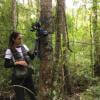














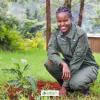











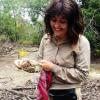

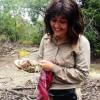

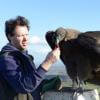
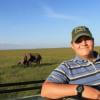

8 December 2015 12:11pm
Hi Sofia,
While there is a argument that the death of Bengal Tigers at a zoo in Crimea could potentially be viewed wildlife crime, your original post was unclear about how this was relevant to a professional community that is focused on collaborating and sharing ideas about conservation technology. I would argue that technological innovation might not be the most important element for finding a solution to the problem you have identified. Rather, there are political, social and economic factors that must be addressed as a higher priority, and if addressed effectively, will negate the need for a complex technological solution to this issue.
That being said, I welcome any community member who might be interested to continue the discussion below.
Cheers,
Stephanie